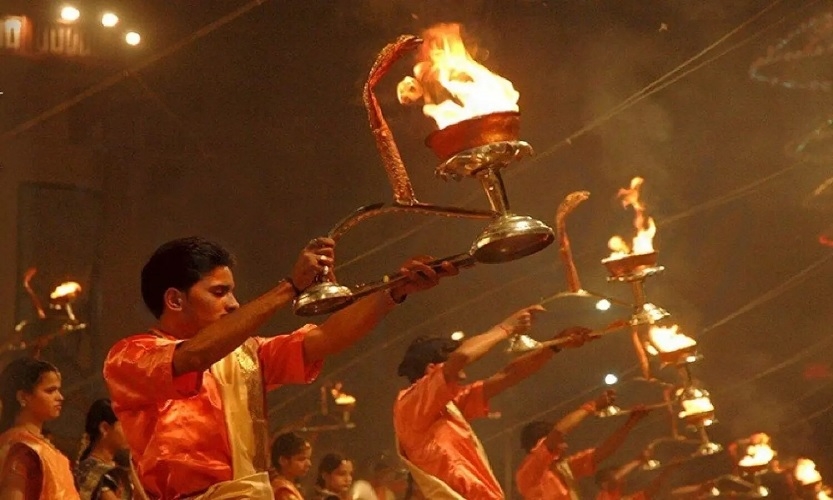Dharma Vs Religion
04 Feb 2024 07:28:25

By DR BHUSHAN KUMAR UPADHYAYA :
The word Dharma is often
translated as religion and
both are treated as synonyms. Dharma is a Sanskrit
word derived from the root Dhri
meaning to hold and sustain.
Religion is derived from the
Latin word Religare meaning to
bind. Dharma has multidimensional meaning. It encompasses a set of beliefs about God,
soul, hell, heaven, salvation,
righteous conduct, eternal values, etc.
Asfar as eternal values
are concerned, Dharma never
changes. Truth, non-violence,
compassion, contentment, etc,
are the values which remain
the same through ages. The
second type of Dharma is related to a particular time or era.
With the passing of time, this
type of Dharma changes. The
third type of Dharma relates to
some specific area or place.This
type of Dharma also undergoes
changes with the change of
places. The fourth type of
Dharma is associated with particular individuals. So this
Dharma is also changeable. On
the other hand religion is a
fixed and non changeable set of
beliefs in God, scriptures and
practices.
Indian tradition believes that
except eternal values which
have nothing to do with religious beliefs,all ideologies or
sets of beliefs whether secular
or religious are bound to
change with the passage of
time. Hence, there cannot be a
watertight ideological framework in the Dharmic scheme of
things. Secondly,there is a spirit
of inquiry in the framework of
Dharma. As a result diverse and
multifaceted opinions and
views are found here. Freedom
of speech is the sine qua non of
the Dharmic traditions.
Therefore, a multitude of literature is produced here. The four
Vedas, Brahmanas, Aranyakas,
Upanishads, Vedangas, Dharma
Shastras, epics like Ramayana,
Mahabharata, Puranas, Bhakti
literature, etc are the epitome of
multidimensional expression.
In addition to the Vedic tradition of literature, we find huge
Buddhist and Jain literature in
Pali and Prakrit languages.
Literature in local languages
like Tamil, Telugu, Kannad,
Malayalam , Marathi , Gujarati,
Bengali etc, is another huge
treasure of knowledge.
India has got a very rich tradition of philosophy. Astik or
Vedic branches of philosophy
have interpreted the truth in
different ways. Mimansa,
Sankhya, Nyaya, Vaisheshika,
Yoga and Vedanta are the different expressions of the same
truth. Ekam Sadma Vipra
Bahudha Vadanti is the declaration of Indian tradition. The
truth is the same and the scholars describe it in various ways.
It is only in the Dharmic tradition that Aham Brahmasmi - I
am God is declared.
This is the
ultimate realisation any
human being may have. But,
this is a blasphemous statement in the opinion of some
other religions. And those who
declared like that had been persecuted also. But there is no
concept of blasphemy in
Dharmic tradition because
Dharma allows freedom of
speech and views the Ultimate
Truth being expressed in different ways. Dharma sees all in one
and one in all. Hence tolerance
and mutualrespect are the soul
of Dharma.
There is no evidence of
theocracy in Indian history.
There were end numbers of
Dharmic beliefs, but no ruler
declared that all citizens had to
follow a particular set of religious beliefs. We find even such
philosophy which has denied
the existence of God also.
Charvaka and Lokayatanas
were materialists.
It is only in the Indian tradition that we find the great tools
and techniques developed over
ages from ancient times to elevate consciousness. Yoga and
allied disciplines are the best
and time tested techniques of
mind management. All this has
become possible because
Dharma acceptslife as a dynamic flow.

(The writer is Former DG
Police & CG, Homeguards,
Maharashtra)
■